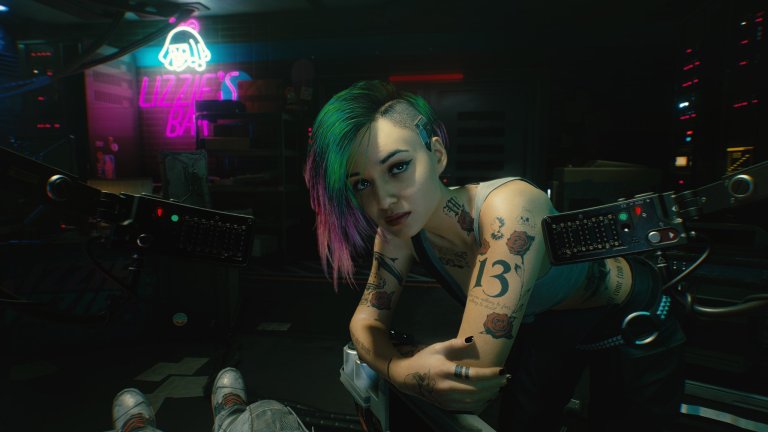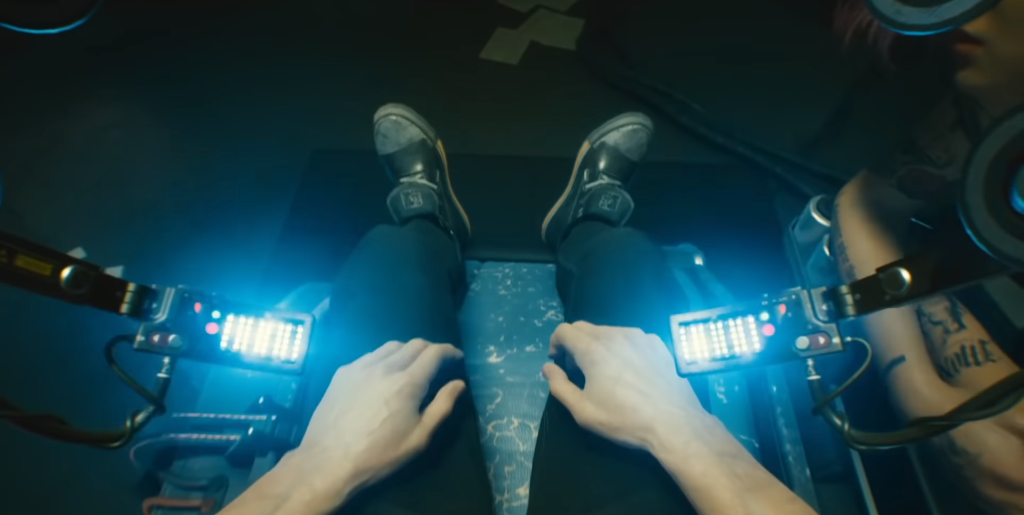Cyberpunk 2077’s Epilepsy Concerns Represent a Bigger Problem
A report regarding Cyberpunk 2077's epilepsy concerns should remind us of the importance of constantly striving to make games more accessible. Instead, it has prompted a different reaction amongst some gamers.

A recent Game Informer article reveals that Cyberpunk 2077 features several notable sequences that may cause epileptic seizures and other health risks.
The report comes from Game Informer editor Liana Ruppert who describes herself in the article as “someone that does have seizures myself due to an injury from my time when I was active duty.” She goes on to explain that her condition prohibits her from being able to play certain games and that she “suffered one major seizure” while playing Cyberpunk 2077.
Sadly, Ruppert also revealed later on Twitter that some people have started sending her videos designed to induce epileptic reactions in response to her reporting on this subject.
Why would anyone do that? That’s a question that we should all be asking, and the unfortunate answers to that question lie in the heads of those who would resort to such actions. We’ve seen fans who have gone out of their way to defend Cyberpunk 2077 and developer CD Projekt Red against anything they perceive to be an attack against the game, but the idea that there are people out there who are so blindly loyal to a game and company that they would attempt to seriously harm someone over a health PSA is unfathomable.
What’s especially odd is that Ruppert’s report is largely designed to be informative rather than any kind of “attack piece” against the game. She’s even asked people to focus more on the game’s triggers and what can be done about them and less on those who are actually attacking her:
That being the case, let’s focus on Cyberpunk 2077‘s epilepsy triggers as they’re not only potentially dangerous but raise questions that need to be answered regarding what can be done about them.
As the article notes, Cyberpunk 2077 features various moments of flashing lights and other intense visual sequences that could trigger negative reactions among some players. For instance, she references sequences involving Johnny Silverhand as likely triggers for some players who struggle with epileptic seizures and other harmful reactions to flashing lights.
However, the bulk of the article focuses on a specific trigger that occurs when players participate in one of the game’s numerous braindance sequences. Those sequences require players to wear a headset that puts flashing blue lights in front of your character’s eyes. Based on a previous gameplay preview of Cyberpunk‘s braindance sequences, this seems to be the headset in question:

As Ruppert points out, that headset not only puts flashing lights directly in front of the player’s eyes, but the design of the headset itself resembles a device used by neurologists to study epileptic seizures and similar attacks. That could just be a coincidence, but it does feel strange that the thematic idea of a braindance does seemingly involve the idea of triggering an intense reaction in the user’s brain. The player’s character even comments on the intensity of the sequence, and it sounds like many of the braindance story segments feature additional moments of flashing lights that are designed to convey transitions into deeper parts of the memory.
At this point, you may be wondering whether or not Cyberpunk 2077 features an epilepsy warning. To be honest, we can’t answer that question with absolute certainty at this time. While some of those who have watched leaked footage of Cyberpunk 2077‘s first few hours noted that they did not see an epilepsy warning, the official information is still somewhat vague. CD Projekt Red has stated in their response to this matter that their EULA features a warning, but the implication is that warning isn’t specifically conveyed in-game:
For the moment, let’s assume that there is going to be an epilepsy warning in the game even if there isn’t one already. That still doesn’t address the bigger problem that people are already pointing out: accessibility and fundamental design accommodations.
Unless Cyberpunk 2077 (and other games) intend to present warnings before every event which could possibly trigger an epileptic reaction, there’s simply no way for anyone whose health is at risk to know when one might occur. As this excellent video on this subject even points out, it’s difficult (if not impossible) for developers to develop a universal “safe mode,” as triggers can vary so much from person to person that there’s no great way for a developer to guarantee the safety of every individual user:
The point is that any possible solutions to this problem involve a mix of clear communication, direct avoidance of the most common visual triggers, a fundamental rethinking of basic design concepts, and any optional accommodations that can be offered which may reduce the potential impact of these sequences when they do occur. It also means that when people point out that there is a potential problem in a game, the move is to learn from them rather than attack or dismiss them.
Too often, though, we see incidents in the gaming community of people being attacked for pointing out ways that developers can better accommodate not just the personal preferences of players but their needs. While companies like Microsoft have made tremendous strides in creating hardware and software designed to accommodate as many needs as possible and developers like Naughty Dog have implemented previously unprecedented accessibility options, this isn’t the kind of subject which can be brushed aside whenever we see an example of how things have gotten better. The important thing to realize is that when people point out the ways that a game falls short of account for their needs, they’re not “complaining” or trying to hinder your enjoyment of a game. More often than not, they’re simply just trying to also be able to also enjoy that game as well and maybe help others prevent problems before they happen.
The fact of the matter is that what we know right now strongly suggests that Cyberpunk 2077 does not do enough to mitigate its visual risks. While its shortcomings in that respect can be attributed to a variety of factors that are not necessarily indicative of any intentional wrongdoing, it is now up to CD Projekt Red, other developers, and everyone in the gaming world to do everything they can to show the proper reaction to these revelations is to find a way to do better.
